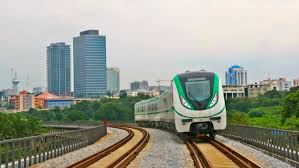Nigeria’s railway sector is undergoing a transformation, opening opportunities for private investment in passenger and freight operations. For investors, securing a Railway Transportation License is the legal foundation for entering the market. The process is governed by the Federal Ministry of Transportation (FMT) through its Rail Transport Services Department, which is mandated to regulate rail transport, oversee the Nigerian Railway Corporation (NRC), process railway infrastructure, and license private railway operators.
This guide outlines the essentials that investors need to know before committing capital, with a focus on official procedures, legal context, regulatory requirements, and the business realities of licensing in Nigeria.
Regulatory Authority and Legal Framework
-
Federal Ministry of Transportation (FMT): The core regulator for licensing and policy oversight. Its Rail Transport Services Department is specifically charged with licensing private operators and regulating fares.
-
Nigerian Railway Corporation Act (1955, as amended): Establishes the NRC as the national rail operator. While NRC manages most federal rail assets, the Ministry licenses private players and oversees integration.
-
Public–Private Partnership (PPP) Framework: Many rail concessions and investments are structured under the Infrastructure Concession Regulatory Commission (ICRC) Act and Nigeria’s National Policy on PPPs. For investors targeting large-scale projects, ICRC approvals and compliance are as critical as the Ministry’s licensing.
Market Context for Investors
Nigeria has invested heavily in modernising its rail infrastructure, including the Abuja–Kaduna, Lagos–Ibadan, and Warri–Itakpe lines, with further projects in planning or construction. With rising demand for efficient logistics and urban passenger services, the Ministry has opened space for private operators in both freight and passenger segments.
Key opportunities include:
-
Freight services on industrial spurs, ports, and inter-state corridors.
-
Passenger operations in urban or intercity corridors, including potential partnerships with state governments.
-
Rolling stock leasing and maintenance operations under FMT oversight.
Licensing Roadmap for Investors
While the Ministry does not publish application forms or fee schedules online, the investor pathway follows a clear framework:
1. Pre-Application Strategy
-
Define your service model: passenger, freight, or both.
-
Identify corridor/asset needs: NRC-controlled corridors, greenfield lines, or PPP concessions.
-
Assess financing model: equity, debt, or blended PPP.
2. Engage the Federal Ministry of Transportation
-
Formal Expression of Interest (EOI): Investors must contact the Rail Transport Services Department at FMT (email: info@transportation.gov.ng) to request the official application pack and licensing guidance.
-
Clarify interface with NRC: Since FMT oversees NRC, private investors using NRC track must demonstrate integration plans.
3. Submit Application Dossier
Expect to provide:
-
Incorporation documents (CAC registration, tax compliance).
-
Technical and operational plan (safety case, operating manuals, rolling stock details).
-
Financial capacity (audited accounts, funding plan, insurance).
-
Environmental and social impact considerations.
-
PPP or concession proposal (if applicable, via ICRC).
4. Review and Assessment
-
The Ministry coordinates inter-departmental review.
-
Possible inspections of facilities, workshops, or proposed sites.
-
Regulatory evaluation of fares (for passenger services) and safety protocols.
5. Approval and Licensing
-
If successful, the investor receives a Railway Transportation License with defined scope, obligations, and renewal conditions.
-
Fees and timelines are communicated directly by the Ministry, as they are not published online.
Investor Considerations
-
Cost Transparency
The Ministry does not publish application or renewal fees. Investors should request an official schedule of charges early in engagement. -
Timeline Management
Licensing timelines vary depending on project size, whether NRC infrastructure is involved, and if ICRC PPP processes are required. -
Risk and Compliance
Safety standards, insurance obligations, and fare regulation (for passenger services) are non-negotiable. A compliance-focused approach increases approval chances. -
Concession Opportunities
For investors interested in long-term rail concessions, aligning with the ICRC’s PPP guidelines is essential. This adds layers of due diligence but also unlocks federal guarantees and structured risk-sharing. -
Integration with NRC
NRC remains the statutory operator. Any access to its network requires negotiated technical and operational agreements under Ministry oversight.
Key Contacts for Investors
-
Federal Ministry of Transportation
-
Department: Rail Transport Services
-
Address: Bukar Dipcharima House, CBD, Abuja
-
Email: info@transportation.gov.ng
-
Office Hours: Mon–Fri, 8:00–16:00
-
-
Infrastructure Concession Regulatory Commission (ICRC)
-
Role: Approves PPP concessions and ensures compliance with the National PPP Policy.
-
FAQs for Investors
Who issues Railway Transportation Licenses in Nigeria?
The Federal Ministry of Transportation, Rail Transport Services Department.
Are fees and forms publicly available online?
No. They must be requested directly from the Ministry.
Can private investors run services on NRC tracks?
Yes, but only with Ministry licensing and agreements that define technical and operational integration with NRC.
Do PPP rules apply to every license?
No. PPP rules apply mainly to concession-based projects and infrastructure investments, but standalone operator licenses for defined services may not require ICRC approvals.
How long does licensing take?
Timelines are case-specific and communicated by the Ministry after submission.
Conclusion
For investors, Nigeria’s railway licensing regime offers real opportunities but requires direct engagement with the Federal Ministry of Transportation. The key success factors are a clear service model, compliance-driven documentation, transparent financing, and early alignment with NRC and ICRC frameworks where applicable.
This is not a process that can be completed solely online; the only way forward is formal communication with the Ministry’s Rail Transport Services Department. By approaching licensing with preparedness and professionalism, investors can position themselves at the forefront of Nigeria’s fast-evolving railway sector.


